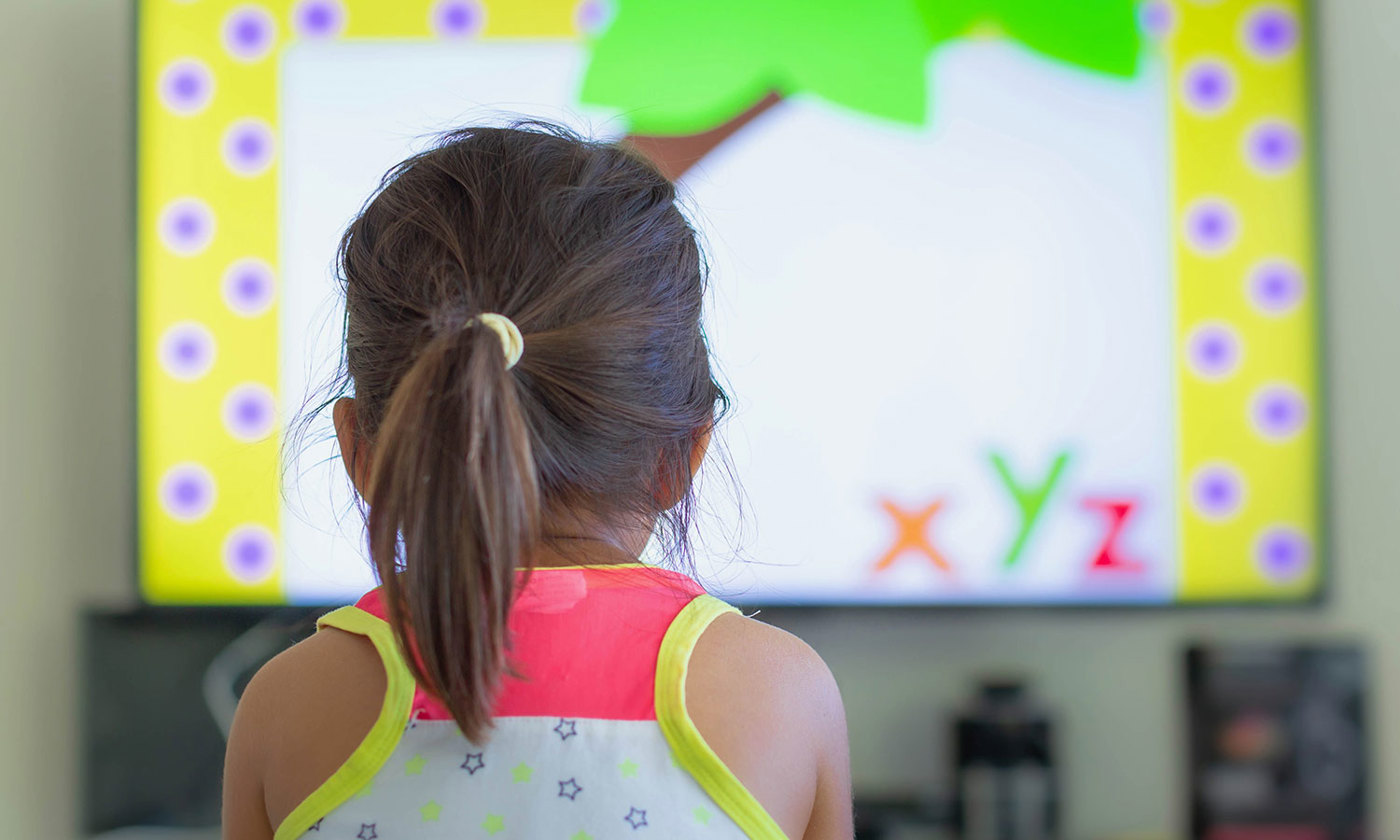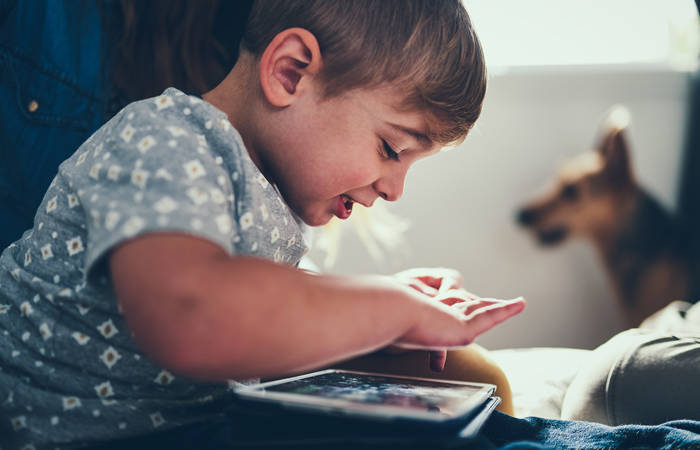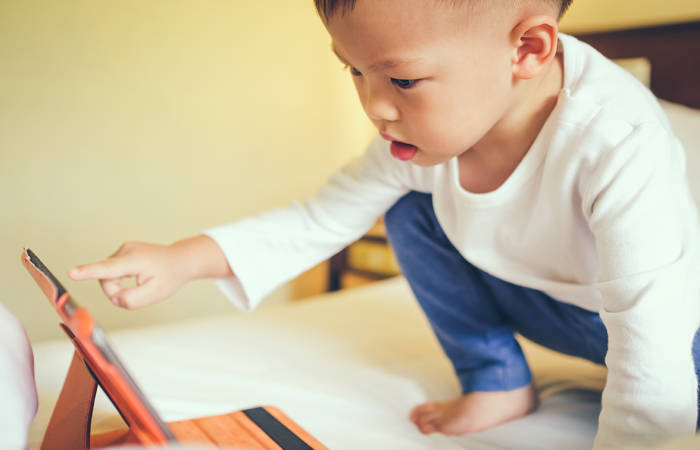Like what you see?
Sign up to receive more free parenting advice.
Thank you for subscribing to our newsletter!
Early Learning

Credit: iStock.com/globalmoments
Parents all know that less screen time is best when it comes to children’s daily experiences.
After all, researchers have focused strongly on the effects of screen time on young children and governments have put in place recommendations for time children spend on screens to ensure they meet the recommended physical movement guidelines.
However, that focus is changing to the content children are watching and their surrounding environment during screen time.
Even parents are turning to online parenting forums to ask whether the post-screen time tantrum is a result of the type of content as opposed to the screen itself.
“Unless children are watching television all day, time alone is not going to determine the impacts on children’s behaviour,” explains Brittany Huber, Fellow at Center for Scholars and Storytellers.
“The content of what children are watching is a huge piece of the puzzle, as well as, making sure the content is developmentally appropriate for that particular child.”
Before we look at what good content for a children’s television show looks like, Huber notes that parents don’t need to feel guilty for their children’s screen time use.
“Think of your child’s day-to-day activities like a balanced diet, like you would for their meals,” she says.
“A day spent only engaged in ‘less nutritious’ activities could mean that children aren’t getting all that they need, such as physical activity, social interaction, play, rest, etc.
“It is also important to note that infants don’t learn from television, although sometimes television can be just for fun, but research does show that having the television on in the background interferes with language development in infants.”
She also advises parents to model the screen-time behaviour they want to see in their children as children’s screen media habits can be related to their parents’ use.
What makes a good children’s television show?
Research has shown that content definitely matters.
In 2015, Deborah Nichols found that children who were assigned to watch a literacy show outperformed their study peers in prereading skills, compared to children who were assigned to watch an educational science series.
While a different study found that children who watched violent or entertaining television before the age of three had an increased risk of attention problems five years later. But there was no such risk with educational content.
Huber and her colleagues found that content had a significant effect on children’s executive functioning performance – their working memory, flexible thinking and self-control.
After playing an educational app, children were more likely to delay gratification than after viewing a cartoon.
Children’s working memory also improved after playing the educational app. They found that, while taking the child’s age into consideration, interactivity and content were key factors to consider during screen time.
Think of your child’s day-to-day activities like a balanced diet, like you would for their meals.Brittany Huber
Stay up to date with the latest news and articles from First Five Years
Thank you for subscribing to our newsletter!
The value of parent participation
Parent participation in television viewing also has an impact.
A US study found that children showed greater emotion recognition, empathy and self-efficacy when their parents discussed the show with them.
Huber explains that good content for children includes several factors.
“The ideal show should have clear language that young children can understand,” she says.
“It should have characters that children can relate to. Research shows that children who form emotionally charged friendships with media characters learn better from that character.
“The show should have curriculum-based content from academic skills to social-emotional skills.”
She adds that the show’s characters and storyline should model behaviours that caregivers want to encourage in their children.
It ideally should also encourage play, such as dancing along, and encourage parent or sibling participation to promote social interaction.
“Additionally, content that encourages parent involvement might include activities that can be done offscreen or lessons to be applied to new situations,” adds Huber.
“Parents can help by recalling a message, for example character strengths such as bravery, or a specific shape the child learned in that last episode and finding it in different settings offscreen.”
She also mentions that there has been an improvement in inclusion in children’s media and parents might want to consider seeking content with diverse and inclusive characters.
One example Huber provides of a good children’s television show is Blue’s Clues.
“Blue’s Clues provides lovable characters that children not only connect with but can also engage with during the call and response moments – where the characters wait for the child to answer their questions, which promotes engagement, learning and problem-solving skills,” she explains.
“This is far better than some children’s television shows where the characters lack language or speak in gibberish.”
Huber notes that with the plethora of platforms available and expanding every day, it can be challenging for parents to keep up.
She recommends Common Sense Media as a great tool for parents to review programs and includes a rating scale.
Huber’s Top Five television show for the Under Fives
- Sesame Street
- Ada Twist, Scientist
- StoryBots
- Blue’s Clues
- Bluey






